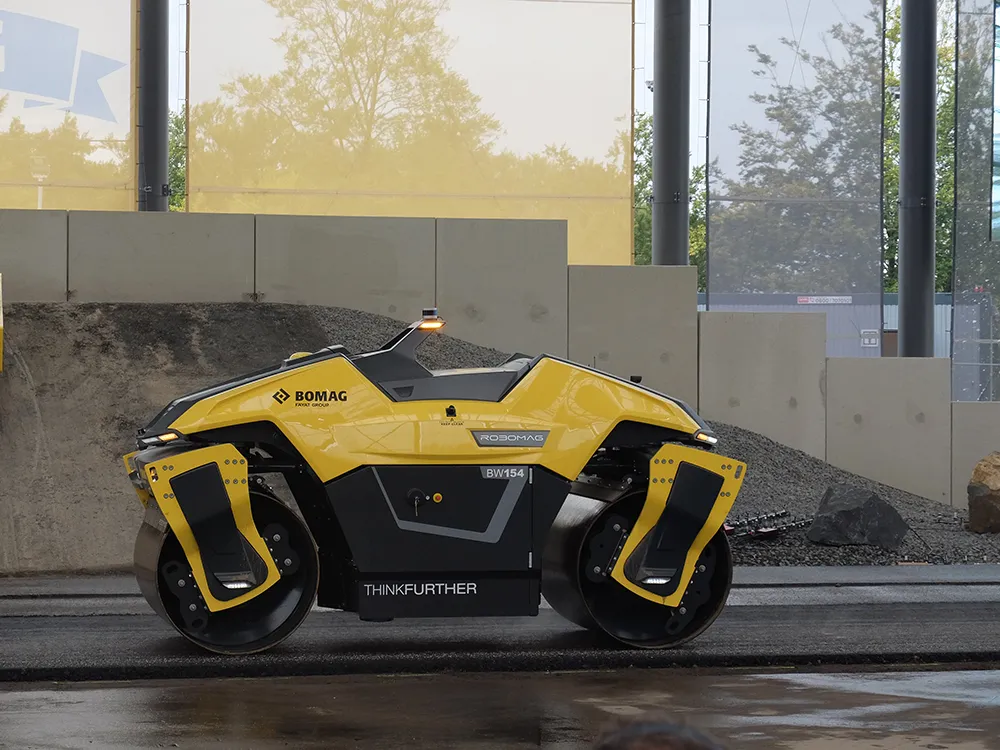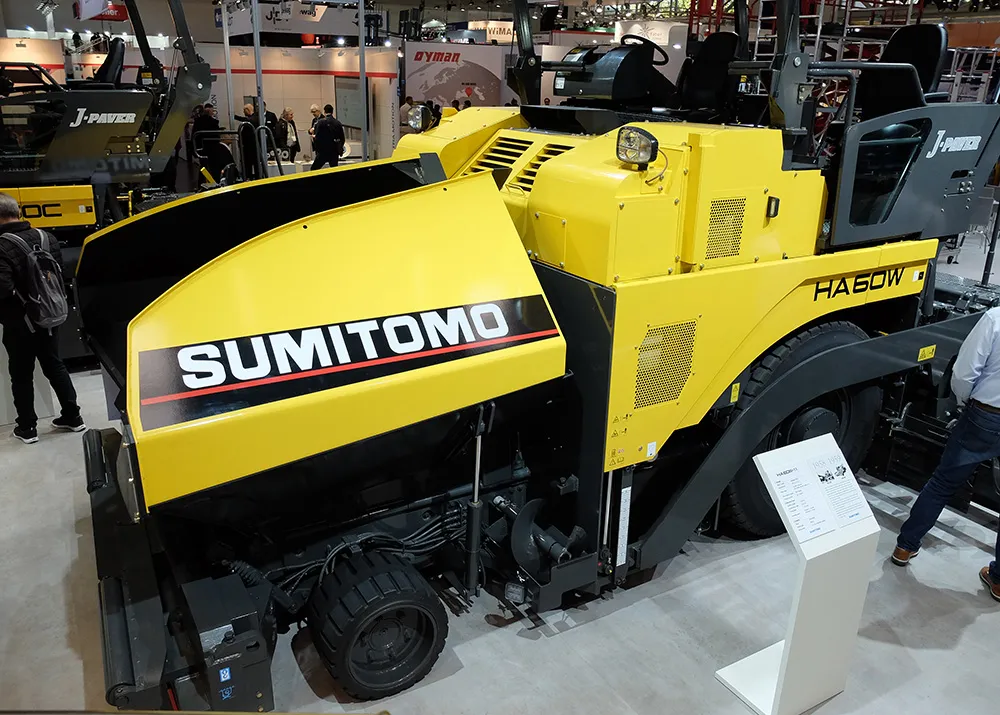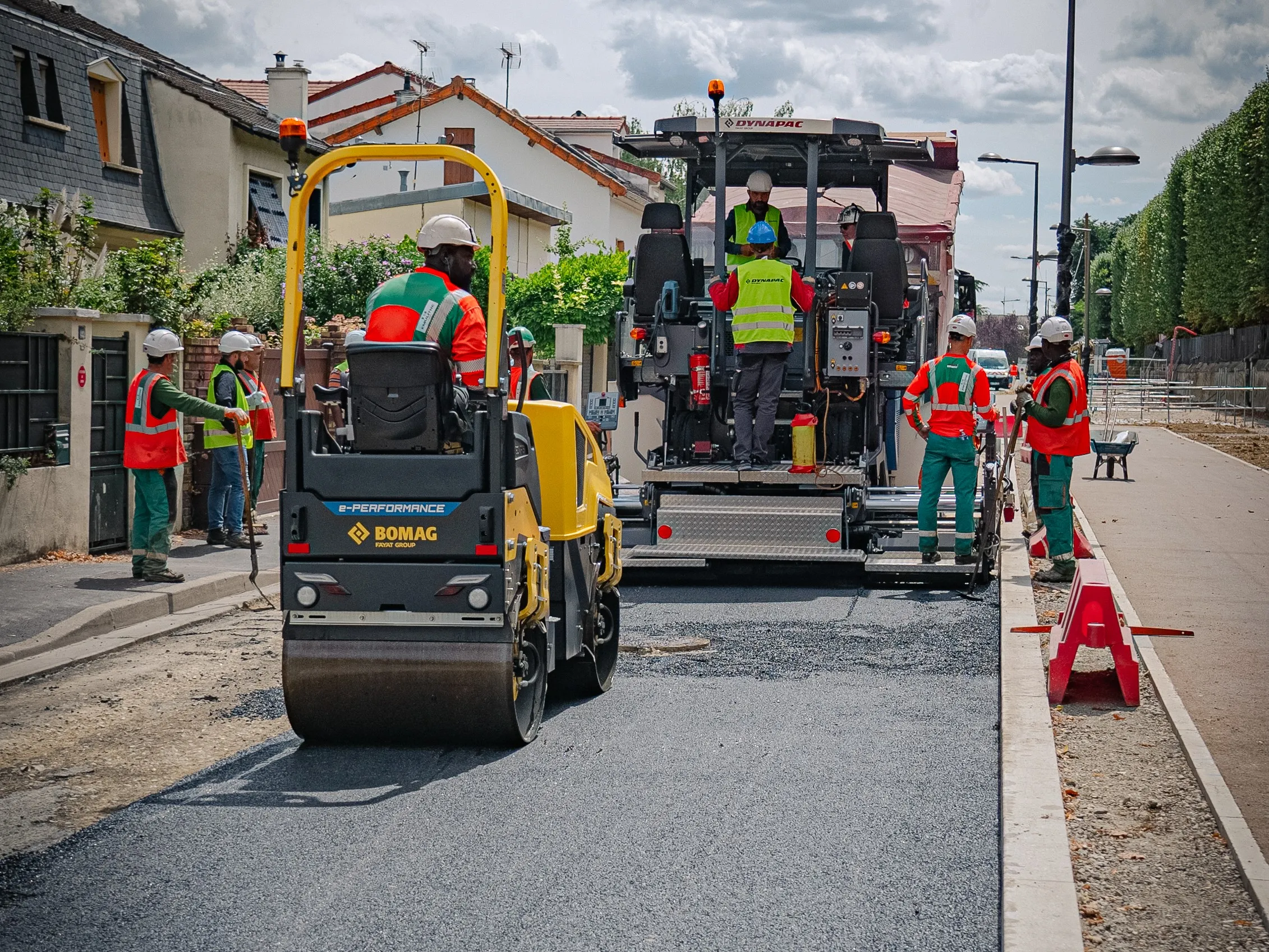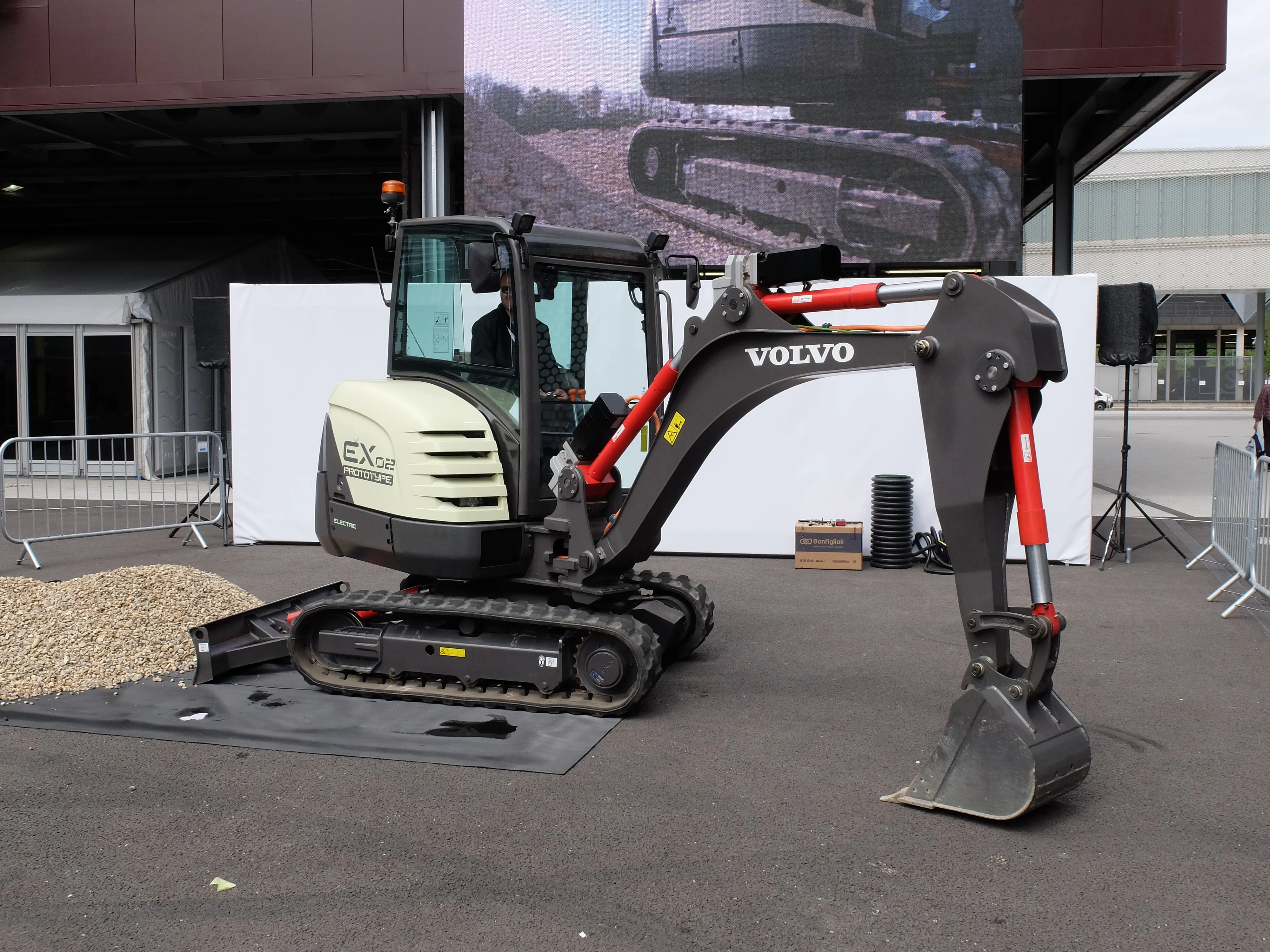
President of parent company Fayat is Jean-Claude Fayat and he commented that Bomag is the world leader in the compaction segment, having been part of the group since 2004.
Fayat explained that Bomag is keen to ensure it has a competitive edge with regard to its products, which is apparent with some of its latest innovations. He said, “We want to think further ahead. We can see three main trends we want to promote.” And he explained that the company is keen to respond to one trend by developing green solutions, for example, low emission machines such as hybrids or ones that use alternative fuels, as well as electric units. Another trend is for digitalisation, with the firm investing in tools such as the Bomag app, allowing a full range of working data from a jobsite to be accessed on a smartphone or tablet. And he said that the company sees a future trend towards autonomy and has developed its highly sophisticated Robomag autonomous compactor in partnership with technology specialist Trimble to meet this demand.
Of all Bomag’s new developments, the Robomag is perhaps the most impressive. This advanced machine is equipped with an array of obstacle detection systems and sensors that allow it to operate safely around personnel and other items of construction equipment. This machine can also be operated remotely, with an operator located up to thousands of kilometres away, thanks to the sophisticated obstacle detection systems. Once programmed to carry out a job, it can also work entirely on its own and Fayat said, “It can be used fully autonomously for compaction in a defined area.”
However, the use of autonomous technology remains constrained by the lack of suitable legislation. A technology with more immediate benefits comes in the shape of the Bomag app, Bomap. The Bomap tool can be complemented by the highly sophisticated Asphalt Pro system, which is available with different variants, from the basic package offering truck tracking to the Lite system with reporting and documentation to the full package that allows full planning of operations from off-site. The firm said that its latest systems allow continuous optimisation of all working processes, providing access to all data. The information from the construction operations can all be documented if necessary, allowing BIM solutions for site working.
In addition, the firm’s different power solutions are also an available technology. As well as conventional diesel power for the firm’s compact BW120 twin drum compactors, Bomag offers customers the option of either electric power or LPG versions. While in the future electric machines may be the first choice, the cost of these units (particularly due to the batteries) and the limited working time before the need for recharging mean that they will remain a niche product. However, the LPG fuelled variants offer a low emission solution with comparable working and refuelling times to the conventional diesel models, along with similar performance and lower working noise. These machines utilise proven engine technology, cost little more than the standard diesel models and can be used in ultra-low emission zones in some cities or in enclosed areas such as multistorey car parks or tunnels.
Bomag’s BW174 AP compactor meanwhile offers a hybrid solution that can significantly reduce fuel consumption. This machine features a smaller diesel than the conventional model, allowing it to have a less complex aftertreatment system. The hydraulic hybrid package uses an accumulator that stores energy as the machine comes to the end of each pass, recirculating this into the drive at the beginning of the new pass. With this system, the accumulator can deliver the extra power required for peak requirements at start up or at the beginning of a pass, allowing the use of a smaller engine with lower fuel consumption.
Another new development from the firm has been its latest oscillatory compactor, which now features split drums. This allows the machine to manage tighter turns while compacting, without risking surface quality. Its gear-driven oscillation system is also said to last the working life of the compactor without maintenance, unlike the belt drives used on earlier machines.









